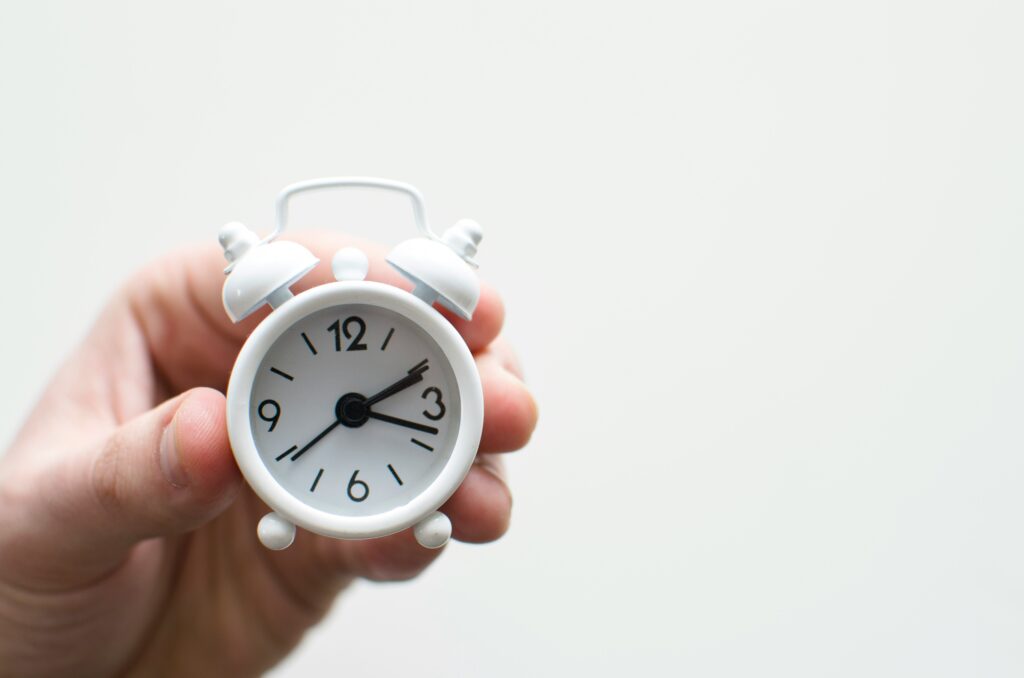Boost Your Productivity Overnight: The Power of a Good Night’s Sleep
By Newt / November 1, 2024 / No Comments / Health & Fitness
When it comes to productivity, many people think of time management hacks, new tech tools, or techniques to maximize their waking hours. But one of the most powerful ways to boost productivity is through quality sleep. A good night’s sleep is essential not only for mental clarity but also for better memory, problem-solving, and even emotional resilience. In this post, we’ll explore the science of sleep and its effects on productivity—and give you some practical tips to make sleep a priority in your self-improvement journey.

Why Quality Sleep Matters for Productivity

We’ve all heard the phrase, “You snooze, you lose.” But science tells us it’s actually the opposite: “You snooze, you win.” Here’s why:
1. Sleep Enhances Cognitive Function

During sleep, our brain organizes and processes information gathered throughout the day. This process—called memory consolidation—helps improve focus, memory recall, and decision-making. REM (rapid eye movement) sleep is particularly essential for creativity and problem-solving. When we get enough REM sleep, we’re better equipped to tackle complex tasks and adapt to challenges.
2. Boosts Emotional Resilience and Motivation

Good sleep enhances our ability to manage stress and maintain a positive outlook. Poor sleep can lead to irritability, anxiety, and decreased resilience. Emotional stability plays a big role in productivity; when we’re mentally and emotionally balanced, we’re better able to handle tasks without feeling overwhelmed.
3. Increases Physical and Mental Stamina

Quality sleep restores physical energy and strengthens the immune system, making us more resilient to illness and fatigue. When our body gets adequate rest, we’re more likely to sustain energy levels and focus for longer periods, enabling us to work efficiently and avoid burnout.
4. Sharpens Focus and Attention

Sleep is essential for maintaining sustained attention. Research shows that sleep-deprived individuals often experience “brain fog,” characterized by difficulty concentrating and slower reaction times. The prefrontal cortex, the part of our brain responsible for complex decision-making and focus, performs at its peak when we are well-rested.
Tips to Improve Sleep and Boost Productivity

Now that we know why sleep is so essential, let’s look at some practical tips to improve your sleep quality. Incorporating these into your routine can lead to noticeable boosts in productivity.
1. Create a Consistent Sleep Schedule

Going to bed and waking up at the same time every day (yes, even on weekends) helps regulate your body’s internal clock. This internal clock, also known as the circadian rhythm, plays a huge role in how well you sleep. When your body adjusts to a routine, it becomes easier to fall asleep and wake up naturally, leading to more consistent energy and focus levels.
2. Set Up an Ideal Sleep Environment

The physical environment of your bedroom can significantly affect the quality of your sleep. Try these tips to make your bedroom more sleep-friendly:
-
- Cool the Room: A cooler temperature of about 65°F (18°C) promotes better sleep by helping the body reach an optimal temperature for rest.
-
- Darken the Room: Exposure to light inhibits melatonin production, the hormone that regulates sleep. Consider blackout curtains or a sleep mask to block out any disruptive light.
-
- Reduce Noise: Noise disturbances can prevent deep sleep. Using earplugs or a white noise machine can create a calm environment and enhance sleep quality.
3. Limit Screen Time Before Bed

Blue light emitted by screens interferes with melatonin production, making it harder to fall asleep. Try to avoid electronic devices for at least an hour before bed. Instead of scrolling through your phone, opt for activities like reading a book, journaling, or meditating. Many people find that this “unplugged” time improves both the quality and quantity of their sleep.
4. Watch What You Eat and Drink Before Bed

Diet can play a big role in sleep quality:
-
- Avoid Caffeine and Nicotine: These stimulants can stay in your system for hours, so try to avoid them at least six hours before bedtime.
-
- Limit Alcohol Consumption: While alcohol may make you feel drowsy, it can disrupt sleep later in the night, especially REM sleep. To maximize sleep quality, limit alcohol consumption or avoid it altogether in the evening.
-
- Choose Light Snacks: If you’re hungry before bed, avoid heavy, spicy, or fatty foods. Instead, opt for a small snack like a banana or a handful of almonds, which contain nutrients that support sleep.
5. Establish a Relaxing Pre-Sleep Routine

Building a nightly routine can signal to your brain that it’s time to wind down. This could include activities like:
-
- Reading: A light, enjoyable read can be a great way to relax your mind without overstimulating it.
-
- Meditation or Deep Breathing: Mindfulness techniques can calm your mind and lower stress hormones, preparing your body for rest.
-
- Stretching: Gentle stretches can relieve physical tension and promote relaxation.
6. Exercise Regularly—But Not Too Late

Physical activity improves sleep quality and duration, but timing matters. Vigorous exercise close to bedtime can actually make it harder to fall asleep, so aim to finish any intense workouts at least a few hours before bed. Morning or early afternoon workouts are ideal for reaping both the productivity and sleep benefits of exercise.
7. Manage Stress with Journaling or Gratitude

Anxiety and stress can keep us tossing and turning. Journaling about your day, setting intentions for tomorrow, or even listing three things you’re grateful for can help clear your mind and reduce stress. When you go to bed feeling positive or reflective, you’re more likely to have a restful night.
The Link Between Restful Sleep and Long-Term Productivity

With quality sleep, you’re not only boosting next-day productivity; you’re also building a solid foundation for long-term personal growth. Studies have shown that individuals who prioritize sleep have sharper cognitive functions, stronger immune systems, and a greater ability to focus. The energy you gain from restful sleep makes it easier to tackle challenges, make decisions, and build positive habits.
A well-rested mind is more creative and better equipped to connect the dots, which is crucial for problem-solving and innovation. Plus, consistent sleep leads to better mood regulation, making you a more resilient and optimistic individual. All these factors contribute to a stronger foundation for self-improvement and productivity in the long run.
The Takeaway: Invest in Sleep for Greater Productivity

Sleep is an investment in yourself. The time you spend resting is time spent optimizing your brain and body for better performance, clearer thinking, and improved well-being. By making sleep a priority and following these science-backed strategies, you can experience meaningful boosts in productivity—overnight and over time.
So tonight, give yourself the gift of quality rest and wake up ready to conquer your goals with renewed energy and focus. Your productivity and well-being will thank you!
Incorporating these sleep practices into your life can set you on a path to success. Embrace the power of a good night’s sleep, and you’ll find that productivity—and life itself—becomes a little easier to navigate.
Additional Resources
-
National Sleep Foundation – Sleep Health Information
The National Sleep Foundation provides reliable information about sleep science, sleep disorders, and practical tips for improving sleep quality. -
Harvard Health – The Importance of Sleep for Productivity
Harvard’s Health Publishing offers a range of articles on the impact of sleep on mental and physical health, including productivity and cognitive function. -
CDC – Tips for Better Sleep
The CDC’s resources on sleep cover common sleep problems and recommendations on sleep hygiene, sleep schedules, and relaxation techniques. -
Sleep Education by the American Academy of Sleep Medicine
This site provides science-backed insights into different stages of sleep, circadian rhythms, and ways to improve sleep quality for better productivity. -
Psychology Today – How Sleep Impacts Mental Health and Productivity
Psychology Today explores the psychological benefits of quality sleep and how it affects mood, resilience, and productivity. -
Mayo Clinic – Strategies for Better Sleep
The Mayo Clinic offers actionable advice on establishing healthy sleep habits, managing insomnia, and tips for a more restful sleep. -
Headspace – Guided Sleep Meditations and Relaxation Techniques
Headspace offers guided meditation specifically for sleep, which can be a helpful tool for readers interested in using mindfulness to wind down at night.
- Check out my other blog post: The Best Vitamin Supplements To Boost Your Health. (Because improving your productivity on your journey requires a combination of diet, sleep, exercise, and mental wellness.)
